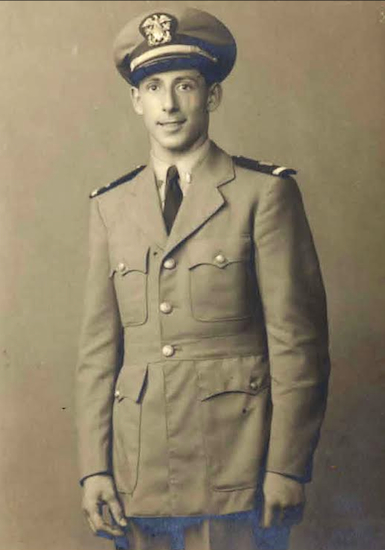WWII marine takes Kingsborough on walk down memory lane

Paul Lieb, shown in a World War II era photo, trained at the Sheepshead Bay Merchant Marine Training Station, now the site of Kingsborough Community College. Photo courtesy Kingsborough Community College
Paul Lieb visited Kingsborough Community College even before it was Kingsborough Community College.
Lieb, whose daughter Elise Laurenti is an English professor at Kingsborough, recently spoke to Dawn Walker, the community’s college’s director of communications, about his days as a merchant marine more than 70 years ago.
Lieb was one of first merchant marines to set foot on the grounds of the Sheepshead Bay Merchant Marine Training Station, located at the site where Kingsborough sits today.
